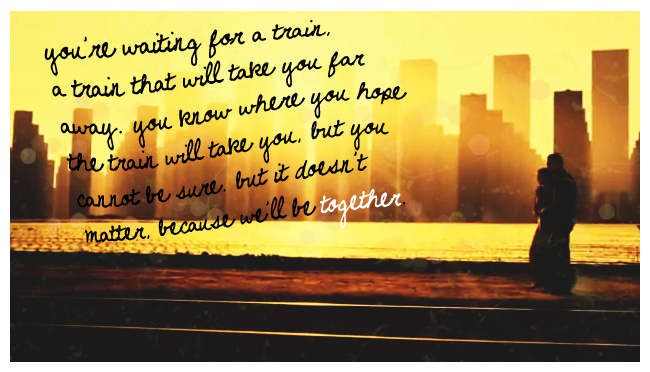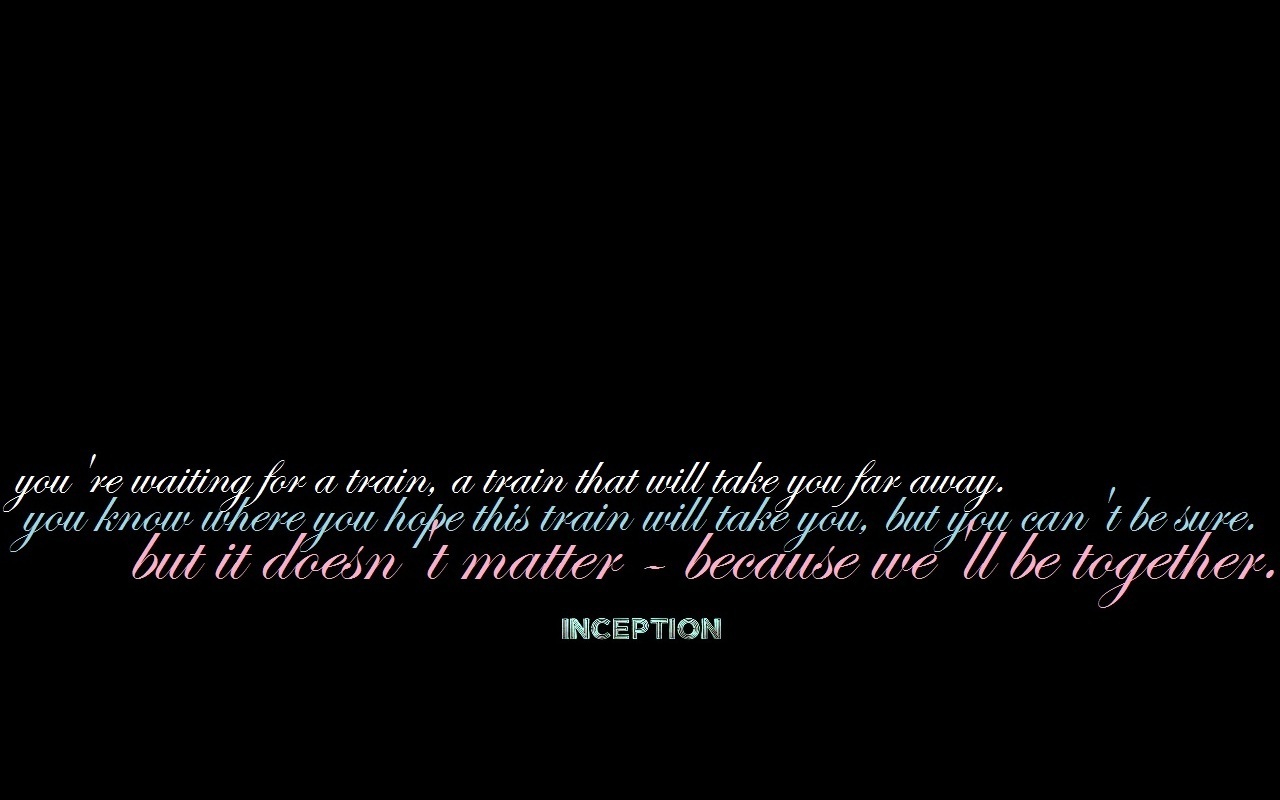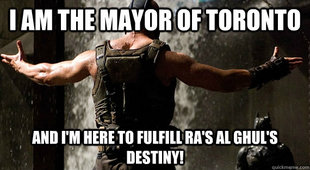
We tend to define success as a ladder; you inhabit one rung until
circumstance, be they hard work, connections or blind luck allow you to climb up to the next one. It's a one-way track; you want to put as many rungs behind you and never revisit them.

Of course, our world isn't strictly horizontal, nor is it strictly vertical. When we focus on ascending within silos or digging in at the grassroots level, we are missing the Outer Limits of our complex, three-dimensional social reality.
Increasingly, planners and policy makers are internalizing this concept - that for a sustainable, functional society, we can no longer afford to be
putting walls around our operations and our careers.
This fragmented,
neo-feudal service delivery model is buckling under the weight of demographic realities; there are too many people with too many complex needs for a
lassiez-faire, singular-focus approach to work.
So what does this have to do with communication?
First, let's make sure we're all on the same page as to what
communication means. While it theoretically means the imparting
and exchange of information through any number of media, we tend to focus on the imparting bit - after all, the goal is our ascendance up the ladder or our holding firm on a given turf, be it physical or ideological.
"It was nice talking to you," we'll say, rather than "it's nice talking
with you." We'll ask "did you get my message?" instead of double-checking "was what I provided clear?" The boss will reprimand their employees with "why didn't you do what I told you to?" instead of asking "were the expectations clear" or even "having done some homework, do you think we've identified the right targets?"
As a whole, in the one-way track world of ascendancy or protectionism, we don't
communicate so much as we
message.
I have, by choice, the frequent opportunity to spend time at the extremes of both the vertical (policy makers, corporate leaders) and the horizontal (community activists, cause advocates, grassroots organizations). While these are two spheres that see themselves as worlds apart, they actually communicate (read, message) in exactly the same way, only using different language.
The uber-rich will take a variant on
Mitt Romney's 47 percent - there are those people who just aren't willing to work hard enough, who don't have the stones or competitive drive to succeed. They
could, but they don't. If they're going to be sheep, they're going to get treated like sheep.
Networking with these people is like a mix of speed dating and the Dragon's Den; they're either trying to figure out if you are worthwhile of their time or trying to sell themselves or pitch their product/service. It's talking at, not engaging with. They might ask your names, but they aren't really listening,
nor do they care. It's more about how whatever you say provides them an opening.
The ardent community activists, be they anti-poverty advocates or anti-wind farm advocates do the same thing; they view the haves or the imposers as selfish obstructionists who
just aren't listening to them. These folk
have their messaging firmly in place, are ready to dismiss any evidence that contradicts their messages with evidence of their own. They need to stand their ground against those who would take away from what they have.

This is
Oppa Message style - it doesn't matter what you say, what matters is that
you listen to
me.
*
Oppa (
오 빠) is Korean for Big Brother.
On both sides, you'll have those who've read some "how to communicate effectively" self-help guides and will make a point of repeating your name to you, both as a mnemonic device and as a way to convey to you that they're paying attention.
Bless these folk for their efforts; sometimes they even pay off. On the whole, though, you can't rote-learn communication, nor can you mine it. Communication has to be a shared enterprise, planted in a bed of trust, patience and a willingness to both share
and understand. True communication isn't about ascendancy or holding ground, it's about bridging gaps.
Which brings me to the picture at the top of this post. Last night I was at a speakers' series on Open Data and Open Government that featured a roster of characters ranging from bureaucrats to lawyers to data activists (yes, there are such creatures). The audience was as diverse as the speakers, with the crowd punctuated by power suits and t-shirts, hipsters, urbanites and grass-roots activists. There were no power brokers or policy makers in the room, which was unfortunate, but there's always next time.
As is the case at any of the events I luck in to ranging from the Forum of the America's Toronto Conference to the Toronto Strong Neighbourhoods consultations, I eagerly participated in the discussion, both live and through live-tweets.
At most events, when people take notice of my engagement they will seek me out and ask "so what is it that you do?" as a way of placing me into their social relevancy charts. There's no shame in this, as it's a cross-cultural practice that helps determine which are the appropriate social pronouns to use, but also tends to limit conversations to specific rungs or territories, fueling the silo-effect we're trying to solve.
I always struggle with that question, because I know what they are looking for is a frame of reference on how to relate to me. Depending on who I am speaking with, I may answer political consultant, a GR/PR guy, a program developer or a project manager, a capacity builder or a comms guy - all of which are true, but none of which actual convey the why that informs my multi-disciplinary specializations.
At the
CitizenBridge event, however, the question I got from people wasn't "what do you do" but rather, "what drives you?"
The difference was amazing. As I explained what the
why behind what I do is and they did the same, the walls came down, the horizontal and the vertical merged into a three-dimensional platform and were were able to discuss systems, both in their components and how those pieces connected (or didn't connect).
For a ladder-climber, a turf-protector or anyone trying to sell something specific, the conversation would have been maddening; we veered from the need for data to the challenges in extracting data, which morphed into a reflection on trust, institution, governance, staff, cognitive labour, training and behavioural economics. Each person in the conversation was focused less on what they'd get to take away and more what they could contribute to.
Which is how problem-solving works.
This leads into the great paradox of our time; we have a growing recognition that sustainable solutions are shared and collaborated on, but at the same time we have an increasingly hyper-partisan political climate and are telling young people entering the work force that there number one job should be to sell themselves to potential employers.
We aren't going to solve this problem with the same thinking that got us into it - we've got to think different.
That means that Open Government, Open Data and service delivery reform have to be about more than disrupting our systematic status quo - it means culture change as well.
It's time to stop putting the personal, professional or political win first and start recognizing the value of achievement. We can all generate out-of-the-box solutions when we become conscious that the box in question isn't a prison of our mind, but rather a limitation we choose to accept.
When we stop myelinating our selves and start expanding our capacity, we'll find that we aren't competing with each other for space - rather, we will bridge the gaps of perception that divide us and become more than the some of the parts.
That's when we'll realize that Open Government isn't about the institution, it's about the people.








 Danielle Genet
Danielle Genet 






















